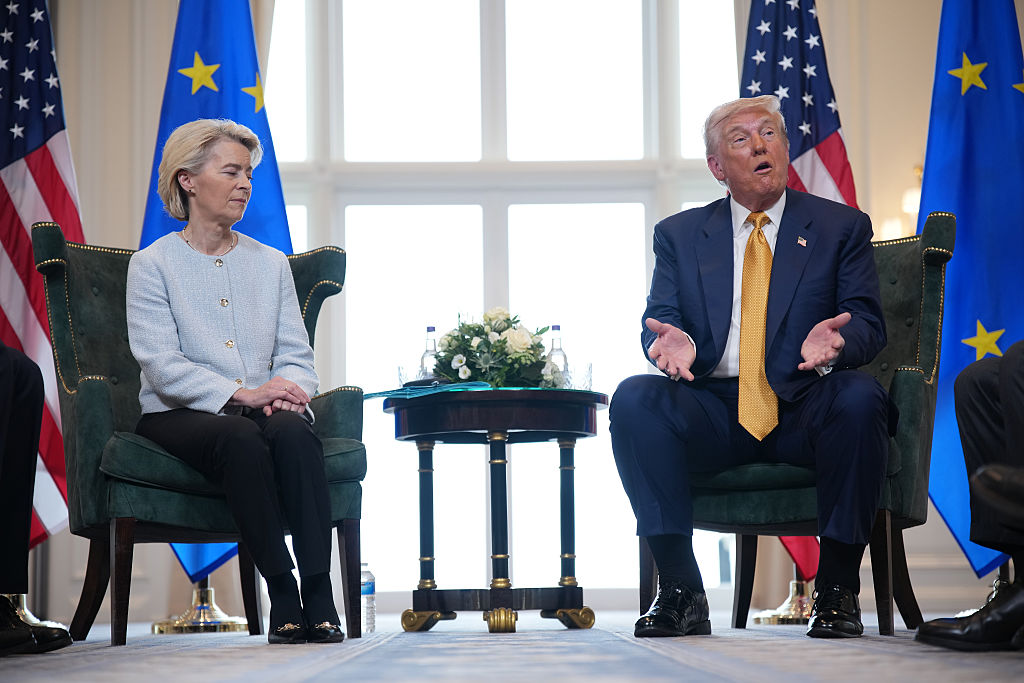The odd saga of the Cracker Barrel logo redesign was likely mysterious to many Europeans, should they have noticed the story at all. How on earth could an apparently anodyne revamp of a declining country-kitsch restaurant chain unleash a national media storm that ended with a grovelling apology from CEO Julie Masino? The old logo in use since the 1960’s featured a country gentleman in overalls (“Uncle Herschel”) leaning on a barrel. The new and now abandoned logo eliminated both the cracker and the barrel, replacing them with an austere corporate name plate. Surely this was one of those obscure American things, perhaps related to guns and religious fanaticism? While the restaurant and its patrons are indelibly American, the episode holds some important lessons for Europeans struggling to understand the spasms of populism growing stronger in their own countries.
Allow me to explain. In a previous career, I was a co-owner of a business that sold truckloads of merchandise to Cracker Barrel. We soon came to the attention of big marketing firms, who invariably encouraged us to go upmarket and advertise in glossy women’s magazines aimed at a much wealthier, urban demographic. But when we interviewed the Cracker Barrel customers who already bought our products, we learned that they were not just uninterested in these magazines, they were actively hostile to them. Cracker Barrel originated in the American heartland, specifically the southern United States, and found a ready clientele among small town denizens one or two generations removed from a rural, often impoverished life. The food and décor were a contrived appeal to those “simpler” times, and customers of a certain demographic (think NASCAR and barbeque) were flattered by the attention. The glossy mags pitched by these marketing firms didn’t offer an aspirational lifestyle to these women, they represented an urban culture that actively disdained them and unsurprisingly, they resented it. We elected to keep our loyal customers rather than try to swap them out for wealthier urbanites.
What we saw was that our would-be marketeers were not loyal to us or our customers. They were more interested in creating advertising campaigns that impressed their New York colleagues than they were in improving our sales. Likewise was the now-chastened Julie Masino hoping to turn the chain into a place her affluent peer group might actually visit, once the yokels and their embarrassing décor were evicted. Fans of Ted Lasso may remember when his boss Rebecca Welton chided her fellow football club magnates with the reminder that while they owned their teams, they belonged to the fans. The implication being that their devotion and loyalty aren’t traded like shares or deeds yet they are the basis of a club’s prosperity and success. Likewise did the prosperity of our little company belong to those downmarket women in Cracker Barrel, not the marketing firms seeking the approval of their professional colleagues.
The same lesson applies to the managerial elites governing Europe. They may carry impressive titles and wield immense political power, but the countries they govern belong to the citizens, whose continued loyalty and devotion are essential for effective governance. When these elites seek validation from their preferred class rather than the broader citizenry, they will often commit grievous political blunders. And so we see German candidates agreeing not to address the obvious downsides of mass migration, lest it embolden the AfD. The British government prefers to prosecute the critics of transsexualism rather than the rapists of working class girls. The Irish government now regards displays of the Irish tricolour as evidence of extremist intent rather than love of country. In each of these cases, governing elites seek the approval of their like-minded social peers clustered in national capitals and ignore the concerns of the less exalted. Like our Cracker Barrel customers, these mere voters sense the disdain of their superiors and return their antipathy in equal measure.
This disconnect between citizen and governing elites is starker and less tractable in the EU because the national leadership class in most member states is more loyal to the mothership of elite governance in Brussels than it is to their own voters or even their own country. With good reason: The EU protects docile centrists from their own electorate. Any populist electoral victory brings down the wrath of the EU bureaucracy, who will connive to punish and remove apostates like Jaroslaw Kaczynski or Viktor Orbán. Americans can turf out a senile President and reorient their government in a radically different direction, which shows disaffected voters that their concerns can (literally) Trump the preferences of the managerial elites in Washington. Europeans cannot as easily change the preferences and policies exercised in the Berlaymont, as the tortured attempts to amend the EU’s Net Zero mandates demonstrate. Their national leaders wield a single Council vote in any attempt to rein in the Commission President.
This lofty presumption that unelected Eurocrats may overrule democratic expression risks destabilising the entire European project by detaching it from the will of the people. Like a football club that loses its fanbase, the EU cannot survive if it alienates its people by thwarting the democratic expression of their concerns. Ostracizing disfavoured parties and restricting political speech are short-sighted tactics that subvert the EU’s stated goal of making a deeper union genuinely popular: A project that has thus far served mainly to enrich (yes) marketing firms. The major structural improvements desperately needed by the EU – Eurobonds, banking union, and dedicated tax revenues – will require the assent of those neglected voters. Treating their legitimate concerns with disdain will be more than a marketing blunder, it risks unravelling the Union altogether.





Suppressing free speech and free votes: EU intent on crippling democratic resilience